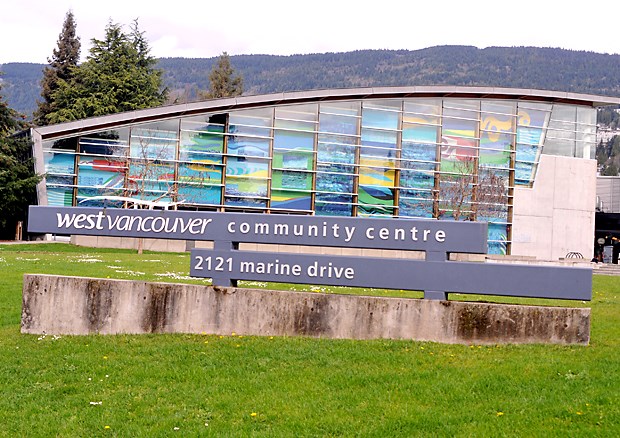A West Vancouver woman says she was shocked and saddened to see an anti-Chinese slur spray-painted on the West Vancouver Community Centre on Monday.
The graffiti included a racist epithet followed by the phrase: Deserve To Die scrawled on a wall near a playing field.
West Vancouver staff quickly removed the paint but it was still unsettling, noted Lillian Salchner, who reported the graffiti.
“There was a lot of hatred in that message,” she said. “Being a Chinese-Canadian, it is shocking.”
The suspects are a pair of 11-year-old children who are thought to be behind a string of racist graffiti in the area, including at least one swastika, according to West Vancouver Police Department spokesman Const. Jeff Wood.
“They’re doing their work in their own backyard. Genius criminal element,” he said.
Police would likely favour a restorative justice approach that underscores the impact racism has in the community, said Wood.
The graffiti might be the work of children but it could also underscore a serious problem, according to North Shore Multicultural Society community connections manager Meharoona Ghani.
“There’s a suspicion that it might be kids, but that doesn’t mean we brush it under the rug,” she said. “Where are the kids learning it?”
Racist messaging can trigger fear for marginalized people who deal with overt and subtle racism, Ghani said.
“As a person of colour, I see something like that and I’d be afraid for my kids. I’d be afraid for myself, wondering: ‘Is somebody going to beat me up next?’”
The graffiti can also elicit fear among residents who are unsure what it says about the community, she said.
Both NDP candidate Bowinn Ma and then-MLA Naomi Yamamoto – B.C.’s first MLA of Japanese ancestry – had campaign signs defaced with swastikas during the recent provincial election. A street in Edgemont was similarly tagged with a swastika in November of 2016.
“Since Trump came into power, it just seems people are more outspoken,” Salchner said.
There is a trend that seems to embolden racism but that doesn’t mean racism is new, Ghani suggested.
“It’s always been there. It’s the undercurrent,” she said.
North Shore demographics have shifted with an influx of immigrants, largely from Iran, Japan, China and the Philippines, Ghani noted.
“With all this diversity … there’s change in community, and when there’s change, people feel afraid,” she said.
Ghani has led conversations with North Shore residents from a variety of backgrounds and found the common theme was fear.
Much of that fear is based on the housing crisis, where many speakers uttered the phrase: “I don’t want to sound racist, but …” during discussions about high real estate prices and vacant homes.
In addressing racism it’s crucial to talk to one another with respect, Ghani emphasized.
“The only way we’re going to move forward is in being truthful and honest around recognizing and owning that racism does exist and that … we are all responsible to do something for it.”
There is hope in the size and diversity of the group who do want to combat racism, Ghani said.
Ghani is helping prepare a forum called Acting Against Racism.
Set for Sept. 14 at the Kay Meek Centre, the forum is slated to address the rise in hate crimes in Canada and to explore strategies for making the North Shore more inclusive.
While the community centre graffiti was disturbing, it is also rare, noted District of West Vancouver spokesman Jeff McDonald.
“In my time here, I’ve not seen an incident like this,” he said. “Like all of Canada, West Vancouver is generally a very tolerant place.”



